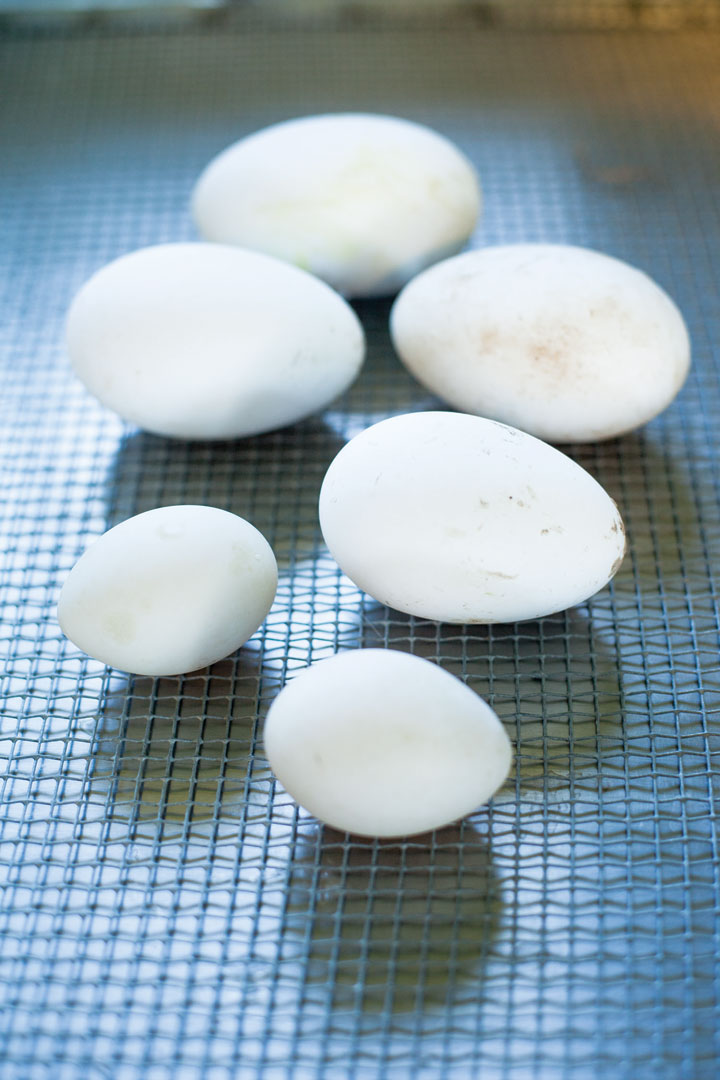[egg-static about april]
April is inextricably connected to eggs in my mind. Of course, Easter is one reason for this, and so is the general sense of spring being a time of rebirth and new life. But most of all, by raising chickens at my farm, we can hardly keep up with the number of eggs we’re collecting this month! Spring’s longer days mean chickens increase their laying after the winter slowdown. I can’t say enough about the taste and health benefits of farm-fresh eggs, so if your community allows it, why not consider raising your own chickens—and reaping the big benefits?
[backyard or farmers market]
If you want to venture into the world of backyard poultry, White Leghorns are a popular choice. They are great layers, known for being friendly and generally calm. I’m also partial to Buff Orpingtons, which are what many people call to mind as the quintessential chicken with their beige (or ‘buff’) feathers. You do not need a rooster for eggs; in fact some city ordinances might allow hens, but not roosters. Things to consider before bringing birds home include predator-proof housing, access to the outdoors, the cost of food, bantams (smaller size) versus standard breeds and cold weather protection. I tell people that adding chickens to your family is like bringing home a dog or a cat—so take into account those demands. Now if you’re not interested in raising backyard chickens of your own, drop by the local farmers market and see what’s available. Even some grocery stores are beginning to carry fresh eggs. Check and see.
[flavor and nutrition]
The eggs laid on my farm travel from the backyard to the table the same day they’re laid. Not so for their supermarket counterparts, which are often one or even two months old by the time they reach the shelves! During this sitting time, their flavor diminishes. Not only do fresh eggs taste better, but they pack serious health benefits, containing less cholesterol, more A, D and E vitamins, and more omega-3s than eggs from processing plants.
[selecting and storing]
Eggs need to be stored properly to preserve their integrity. Some people say cool eggs don’t bind as well in baking, lose flavor in the fridge and that fresh, free-range eggs can keep for up to a week at room temperature, especially if they have not been washed. Washing eggs removes a thin membrane called the bloom that prevents bacteria from entering the porous shell. Most cookbooks advocate storing eggs at a temperature under 40 degrees, i.e. the fridge, where they can last up to five weeks.
[P. Allen Smith, host of two public television programs, is an award-winning designer and gardening expert. He is the author of several books, including Seasonal Recipes from the Garden.]








